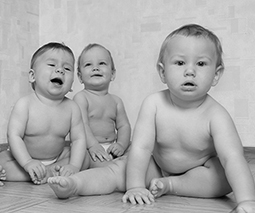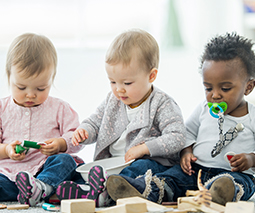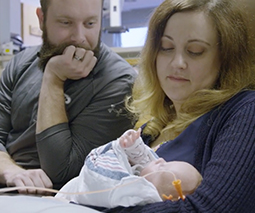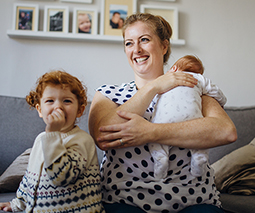Research reveals fertility apps are giving women wrong information

Fertility apps have become hugely popular for women who are either trying to conceive or wanting to avoid conception altogether.
But a new study presented at the Fertility Society of Australia Annual Conference in Hobart this week has found many of these apps are giving women inaccurate and misleading information.
Fertility app research
A study carried out by researchers at Eve Health Fertility Clinic in Brisbane and Queensland Fertility Group, examined 36 out of 400 fertility apps which are marketed as being reliable.
“All of the apps market themselves as a means of being able to track the cycle and help with fertility, so planning for fertility,” Samantha Costa, fertility nurse, midwife and author of the research paper told the ABC. “But a lot of them also market themselves as a contraception tool as well.”
Additionally, researchers discovered 57 percent of fertility apps predicted incorrect ovulation information, while nearly 83 percent incorrectly predicted estimated baby due dates, reports the Sydney Morning Herald.
Misinforming women
Samantha says that at least 70 percent of women going through fertility treatment use these apps for tracking their cycles, which is how this study came about.
“On a daily basis we ask our patients, ‘Do you know where you are in your cycle?’, ‘Do you know when you ovulate?’, and the common theme is ‘Let me just check my phone, let me just check my app,’” she told the ABC. “So, they are very very reliant on these applications.”
What also stood out in the research was how apps were marketed in terms of their effectiveness despite having very little professional input.
“We found that they are very inaccurate, despite most of those applications marketing themselves as a health tool, only 8.7 percent of those applications, so less than 10 percent actually had cited information or literature from reliable sources.”

Problems with fertility apps
This is not the first time that fertility apps or menstruation apps have raised concerns in regards to their accuracy.
A 2016 study out of Columbia University found “most free smartphone menstrual cycle tracking apps for patient use are inaccurate” and “few cite medical literature or health professional involvement.”
More recently, UK-based advocacy group Privacy International discovered that certain menstruation apps such as Maya and MIA were sharing highly personal information.
The research revealed the deeply intimate details that women were putting into these apps were being passed on to Facebook and other third parties. This included information such as the timing of women’s periods, their period symptoms, their moods, their use of contraception, when they last had sex and whether or not it was protected.
Why use them?
Fertility has become big business and the market has been inundated with apps to make it happen. In fact, the Herald reports a 47 percent increase in the number of mobile fertility apps on the market, between January 2015 and December 2018.
However, they not reliable, and according to this new study, they shouldn’t be the only source of women’s reproductive information.
Samantha believes that the apps can be useful but they don’t factor in personal facts affecting fertility, nor do they consider the fertility of male partner.
“They can be helpful,” says Samantha. “However, if you are trying to conceive and are having problems, don’t just take advice from an app. Seek medical advice sooner rather than later.”









